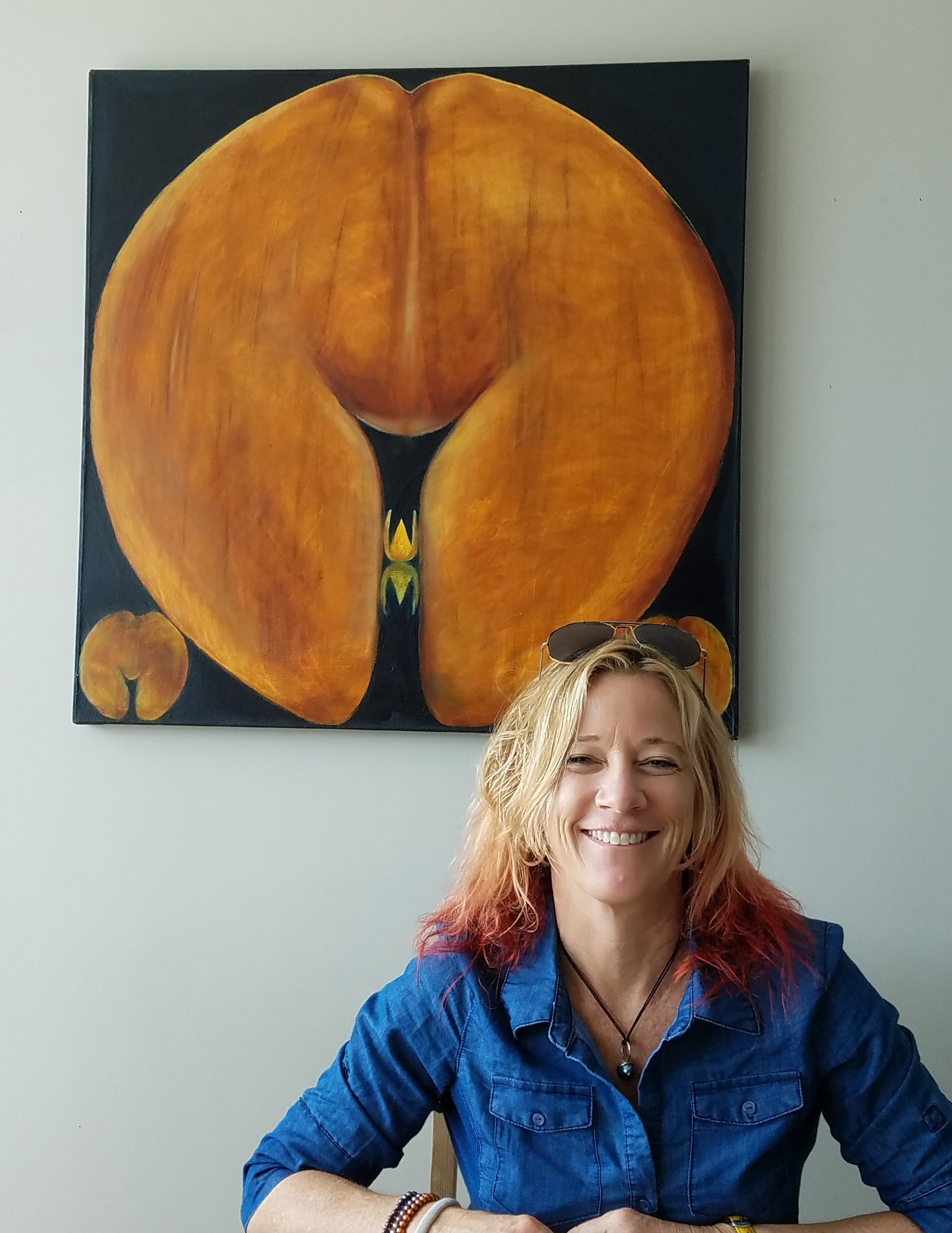2026 GCLR Graduate Student Conferece: To be announced!
************************************************
Blue Humanities and Liquid Media: A Watery View of the World
2025 GCLR Graduate Student Conference
with Keynote Speaker: Dr. Elizabeth DeLoughrey

The Bahamas as seen from STS-52 in November 1992.
The University of California, Santa Barbara’s Graduate Center for Literary Research (GCLR) is pleased to announce its annual academic conference: “Blue Humanities and Liquid Media: A Watery View of the World”
● The Oceanic Humanities
● Migration Studies
● Archipelagic and Island Studies
● Arctic/Antarctic Studies
● Mediterranean Studies
● Liquid Media and Liquid Modernity
● Water and the Anthropocene
● Environmental Humanities and Ecocriticism

Professor Elizabeth DeLoughrey, UCLA
Elizabeth DeLoughrey is a professor in English and the Institute of the Environment and Sustainability Studies at the University of California, Los Angeles. She lectures on Postcolonial and Indigenous literatures, Globalization, Critical Ocean Studies, and Anthropogenic Climate Change with a focus on the Caribbean and Oceania. She is the author of Routes and Roots: Navigating Caribbean and Pacific Literatures (U of Hawai`i Press, 2007), and Allegories of the Anthropocene (Duke UP, 2019), which examines climate change and empire in the literary and visual arts. She is co-editor of the volumes Caribbean Literature and the Environment: Between Nature and Culture (Virginia UP, 2005); Postcolonial Ecologies: Literatures of the Environment (Oxford UP, 2011); and Global Ecologies and the Environmental Humanities: Postcolonial Approaches (Routledge, 2015) and of numerous journal issues on critical ocean, island and militarism studies.
Date: Saturday, May 31st, 2025
Time: 9 am-2:30 pm PST
Location: Wallis Annenberg Conference Room (4315 SSMS), UCSB
(for Zoom: email complit-gclr@ucsb.edu for registration link)
Keynote Address by Prof. DeLoughrey: “Would Bob Marley Support Sea Bed Mining? Fathoming Cultural Ontologies of the Deep”
This paper builds on a longer critique of the rise of the term ‘blue humanities’ in relation to extractive practices, both in neoliberal and academic terms. Mining companies use visual and narrative tools to extract what they refer to as a "social license to operate" to manufacture consent around their environmentally destructive practices. The deep sea poses ontological and cultural challenges to this model because the regions to be mined are largely outside of national jurisdiction, are inaccessible without expensive technologies, and are impossible to inhabit and therefore to develop cultural sedimentation. Or are they? My larger project examines how cultural and ontological claims are being narrated in response to the threat of deep-sea mining, particularly from Caribbean and Indigenous Pacific communities, artists, and practitioners. The work engages recent calls for an international recognition of the ocean as a space of intangible (and integral) cultural heritage, including Indigenous cosmologies, middle passage memorials, and sacred seascapes.This particular presentation fathoms these ontologies in relation to Rastafari imaginaries of the deep.
Conference Presenters
Panel 1: Turbulence
Isaiah Washington (English, Georgetown University)
Presentation: “The Undrownable Haitian: The Shift Toward Drowning Death Prevention in Edwidge Danticat’s Adult Fiction”
Isaiah Washington graduated summa cum laude from Georgetown University this May with an M.A. in English. He was honored with the school’s Exceptional Master’s Student At-Large Award and was nominated for the Graduate Student Teaching Assistant Award. He also participated in SWIMMING, a D.C. public art project that links the legacies of pool segregation with rising sea levels. In 2023, he graduated summa cum laude from American University with a B.A. in Literature. This fall, he will begin his Ph.D. in English at Cornell University, where his research will focus on representations of Black drowning deaths and swimming inability.
Maria Malinovskaya (Slavic Languages and Literatures, Stanford University)
Presentation: “From Dream to Dread: Shifting Sea Metaphors in Post-2022 Russophone Poetry"
Maria Malinovskaya is a Ph.D. student in the Department of Slavic Languages and Literatures at Stanford University. Her research focuses on contemporary Russian, Belarusian, and Ukrainian literature, with a particular emphasis on poetry. She is especially interested in documentary and narrative poetry across Slavic and global literary traditions, as well as autofiction, the Language poets and their influence on Russophone verse, and translation studies. Her work is grounded in comparative literature, decolonial studies, and trauma studies.
Suvankur Sukul (English, UC Santa Barbara)
Presentation: “‘Why would anyone make a dhaam (temple) in a swamp?’: Amitav Ghosh’s Gun Island and the Analytic of Instability”
Suvankur Sukul is a Ph.D. student and a Regents Fellow at the department of English, UCSB. He completed his MA in South Asian Studies at the University of Chicago and his interests lie in Global Literatures, Environment and Ecocriticism and Critical Theory. He is currently working specifically on literature produced in English and Bengali from the 20th and 21st centuries to think about how the particular epistemic environment of Bengal’s marshy and swampy land enables us to move beyond the dialectic of land and water and focus on the ways in which dwelling and mobility have affected the nature of literary forms in a colonial city.
Panel 2: Fluidity
Mei Flory (English, UC Santa Barbara)
Presentation:“We’ll go there to forget”: Reading Thi Bui’s The Best We Could DoThrough a Framework of Narrative Recovery
Mei Flory is a first-year Ph.D. student in the English Department at UCSB. Her research interests include 20th and 21st century Asian American literature and media. She is particularly interested in forms of migration and critical adoption studies, specifically East Asian transnational adoption and how it informs culture and identity.
Catherine Li (English, Chinese University of Hong Kong)
Presentation: “Fluidity, mobility, and boundlessness: an archipelagic reading of Island of Silence”
Catherine (Lanqing) Li is a PhD student at the Department of English at The Chinese University of Hong Kong. Her research interests are Hong Kong literature, Hong Kong studies, Island writing, Archipelagic Studies, Archipelagic Thinking and Relationality. Prior to today, she has presented her research findings at the annual conference of The Society of Hong Kong Studies. She is currently working on her PhD project which aims to reimagine and reexamine Hong Kong literary scenes from an oceanic, archipelagic point of view.
Kelly Fan (East Asian Languages and Cultures, UC Berkeley)
Presentation: “Plastic Temporalities: Trash, Translation, and the Work of Myth in Wu Ming-Yi’s
The Man with the Compound Eyes”
Kelly Fan is a third-year PhD student in the department of East Asian
Languages and Cultures at UC Berkeley studying modern Chinese literature, film, and
media. Her interests are situated at the intersection of narrative theory, media theory, new materialism, and the philosophy of writing. Her current project traces the emergence of literary and non-literary forms that intervene on the question of life—conceptualized variously as a biological, metaphysical, political, and aesthetic phenomenon across Republican, socialist, and post-socialist China. She holds a BA in English and Economics from Columbia University (2016) and an MA in Asian Studies from UC Berkeley (2021).
Panel 3: Futurity
Brian Rivera Hernandez (Literature, UC Santa Cruz)
Presentation: “Liberating Waters: Co-constructions of Rebellion and Knowledge”
Brian Hernandez is a Ph.D. student in the Literature department at UC Santa Cruz. His research focuses on Indigenous environmental resistance, aesthetic practices, and decolonial thought in contemporary Latin American cultural production, with a particular interest in Mexican water politics and the role of visual media in contemporary environmental justice movements.
Reilly Clark (History of Art and Architecture, UC Santa Barbara)
Presentation: “Abalone Futurism: Iridescent Art in Native California”
Reilly Clark is an art historian studying repatriation, restitution, and museum practice. Reilly earned his B.A. and M.A. in Art History at Stanford University, where he focused on modern and contemporary Indigenous art. In addition, Reilly studied at the University of Oxford, where he specialized in repatriation. Reilly has professional experience in repatriation, appraisals, museums, conservation labs, and archaeological sites as well as academic research.
Ian Laughbaum (Film and Media Studies, UC Santa Barbara)
Presentation: “Imaginary Fish: Jim Sachs’ SereneScreen Marine Aquarium within the Histories of the Home Aquarium and the Home Computer as Epistemological Viewing Machines”
I.B. (Ian) Laughbaum (any/all pronouns) is a 1st-year Ph.D. student in the Film and Media Studies Department at UCSB. Their research focuses on the intersection between marine biological scientific practice and popular culture, specifically the ways in which mediated popular forms such as cinema, online video, video games, and literature affect scientific forms such as laboratory practices, scientific journal writing, and conservationist discourses. They are particularly interested in the history of evolutionary theory, nineteenth and twentieth century primitivist discourses, and the possibilities of play and game design to construct radical interspecies politics.
Conference Moderators
Martina Mattei (Comparative Literature, UCSB)
Martina Mattei is a fourth year Ph.D. student in the Comparative Literature program at UC Santa Barbara. She completed her MA degree in literature at the University of Cagliari, Italy, with a specialization in modern European literature and philology. Her research interests include children’s literature, film and media studies and adaptation studies. She is particularly interested in exploring intertextuality across media in contemporary Italian literature for children, especially adaptation of canonic Western literature for didactic purposes. Her languages are Italian, French, Spanish and Sardo, the language spoken in Sardinia, her native island. She was a co-convenor of the IRSCL 2023 conference in Santa Barbara.
Eylül Belden (Comparative Literature, UCSB)
Eylül Belden (she/her) is a writer and scholar based in Santa Barbara. Originally from Istanbul, Eylül holds a BA in Translation and Interpreting Studies and an MA in Comparative Literature. As a first-year PhD student in the Comparative Literature program at UCSB, Eylül’s research interests include literary translation, adaptation studies, contemporary reworkings of ancient Greek and Latin literature, intermediality, and women’s writing. Eylül is a practitioner of literary translation from her native Turkish into English, and experiments with avant-garde forms of writing.
Kristin Yinger (History of Art & Architecture, UCSB)
Kristin Yinger (she/her) is a second-year PhD student in the History of Art and Architecture and a member of the GCLR Student Advisory Board and journal. Her research focuses on 20th and 21st century American art, with interests ranging from 1970s feminist alternative arts magazines and collaborative artistic practices to photography and arts education.

